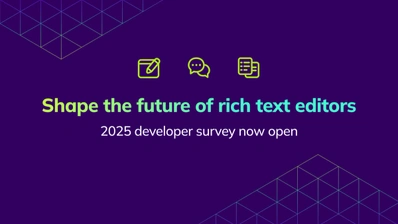How blockchain-based writing platforms are shaping the future of written content

Blockchain is a term you may be familiar with if you have ever used cryptocurrency such as the infamous Bitcoin. It is a digital ledger that stores transactional data and other information between parties by relying on multiple nodes, or multiple computers (systems), connected to a network that shares this storage of information. Thus, it is a decentralized database of information.
It is this digital distribution on a network that makes it much more secure than most other methods that came before it – using a cryptographic hash system – and independent from gatekeepers in influencing what can or cannot be recorded as well as having access to its transactional data. Each block in this blockchain contains a small portion of the code (or a number of transactions) necessary to record on the ledger, thus no single user controls all of the information, but it is distributed. Every time a new transaction occurs within this blockchain, a record of it is added not just to one user or node but spread across all of them.
Blockchain applications offer decentralized workflows
Blockchain is being used not just for transactional record-keeping purposes of cryptocurrency and as decentralized models for various industries. It is also being integrated into various apps with different purposes in mind related to transactions, contracts, data sharing or more.
Many of these apps could help writers, freelancers and professionals of all sorts in various ways. This is because blockchain applications allow for freelancers and those working remotely as a whole to function smoother while taking out the middlemen in many different operations.
For such applications, something like CKEditor 5 can prove instrumental for its users. This is because it can be integrated into web apps and allow rich text-editing capabilities to create text all within the confines of an application already pre-existing.
Blockchain use cases related to written content production
Writing and blockchain technology may, at first glance, seem like they have nothing in common. However, due to the ever-changing nature of blockchain and how it is constantly evolving with developers finding new ways to make use of it, this is no longer the case. Content writing reliant on blockchain and cryptocurrency is growing as is crypto writing, overall cryptocurrency content and different types of content with some element of writing involved based on blockchain.
To write about the blockchain, one must understand many aspects of the technology and how it came to be. If you google or search blockchain, you will see various positions offering content writing for a crypto-type publication. The blockchain industry is quite huge today and many different websites focus on or often cover crypto or blockchain regularly.
In the future we may see white papers, technical writing, press releases, newsletter content and more all tied to the blockchain. Crypto writers may even be synonymous with journalists of the past. However, for now the use cases are small in number in terms of the written content not just covering cryptocurrency and blockchain content as a technology, which is numerous indeed, but being reliant on it for funding or other means.
Many Writers and editors as well as thought leaders are all looking at blockchain either as a topic to cover or using it as backing in some way or form.
Crypto content writing is here to stay and should continue growing in scope over time as more industries embrace blockchain and crypto as a whole. Let us now take a look at some blockchain uses that show how it can benefit writers and some applications or platforms that currently exist targeting writers or editing of content directly.
Applications of blockchain: encrypted messaging
There are various encrypted messaging platforms available that tap into the blockchain for security and other means. These blockchain apps, which are a part of messaging or data sharing platforms, allow a more encrypted if not anonymous way to communicate, share data, and in some cases even exchange payment using cryptocurrencies.
A prime example of a cryptic messaging platform and a blockchain application use case is Mailchain.
It is an email-like messaging platform that allows its users to send encrypted blockchain messages. It allows users to even send file attachments and all messages are encrypted so that only the sender and recipient can decrypt the final message. A good example of its usage in the corporate sector is to send an invoice to the Ethereum account and accept payment using the Ethereum cryptocurrency.
What drives Mailchain’s email-like interface and messaging system is none other than CKEditor 5. A case study about the integration is available that tells the tale about this partnership. CKEditor 5’s ability to be fully customized to a client’s needs, such as an email interface in this case, and how it can be integrated into its system or app is what made it ideal for this role.
Users do not have to abandon their security by relying on outside editors or apps to send messages as it is all done within one interface or platform. CKEditor 5 really paved the way to make this happen. The platform (an open-source web client) originally had a bare-bones editor in place, but decided to switch to CKEditor 5 due to its rich text abilities, many features it offers as plugins, and its overall flexibility with regards to integration.
Applications of blockchain: decentralized writing platforms
Writing platforms have traditionally been attributed to individual gatekeepers or the companies running the platforms. Before this, journalism or traditional paper writing in terms of newspapers or magazines, have had many more gatekeepers: ranging from publishers to various editors alongside the publishing process.
Thus, our second blockchain use case example for writers is that an entire writing platform has appeared recently, called Mirror.xyz. It also happens to be the first decentralized writing platform of all time and a great example of what the future of blockchain can hold for writers. If you head on over to Mirror’s website, you will see toward the bottom of its landing page a description that sums up the advantage of the way this platform works vs traditional writing platforms:
“Joining Mirror does not only make you a community member. It makes you a co-owner of the platform. As a result, our platform is a sum of our contributors. While we’re eager to grow Mirror to a monumental scale, we’ll first be granting access on an individual basis to ensure a quality foundation.”
This co-ownership and the idea of owning your own content is pretty unique in the writing and journalism landscapes. It is also the case with the idea of a decentralized writing hub existing in such environments.
Such implementation of blockchain and blockchain use case can in theory not just keep gatekeepers away from altering writers’ works, and influencing them with bias, but allow writers to choose what they want to do with their texts – such as republish the text somewhere else or edit the text themselves. It can also mean they can rely on a more transparent and fair pay scheme rather than have a gatekeeper in the process taking cuts of their payments or others choosing how much each writer is worth.
CKEditor 5 can be integrated into similar writing platforms of the future that rely on blockchain for the various aspects it provides with its decentralized model, as described above. This is because such blockchain use cases can make use of a rich text editor within their main websites, or web apps, for a fully cryptic experience, all within a single framework.
Future content writing teams that rely on profit sharing related to blockchain should have much more saying power in the type of content they produce due to their own interests being at heart and their salary being tied to their own work.
Keeping writing within a blockchain-based ecosystem matters
Blockchain is making its presence across a wide range of industries and the writing, publishing and journalism industries are no exception. It can benefit the writer and the platform or publisher they work for. It can also benefit other fields like the educational sector where writing scholarly papers is a crucial part of the job.
An editor that works within other applications that already use aspects of blockchain can also be useful to make this happen. This is why CKEditor 5 is something any app developer utilizing blockchain or any platform that relies on it should consider. It can be integrated and made a vital part of the whole experience without requiring anyone to use third-party solutions, outside of the app they created with a purpose in mind other than writing per se.
Mailchain shows how such an integration can benefit end users. It can transform a bare-bones text editor with amazing cryptic messaging capabilities and anonymity into a fully robust rich text editor that replaces the basic editing experience, while keeping all of its cryptic and blockchain advantages when integrated right.
The beauty of CKEditor 5 is in how customizable it is. It can be customized to a wide range of needs, or purposes, from a bare-bones editor used for messaging within a decentralized network to a full rich text editor used to write long-form content. App creators that rely on blockchain integrations can do well incorporating such an editing solution within their ecosystem.
So, as you see, now is a great time to become a crypto content writer. Cryptocurrency content writers will continue to make their presence felt and the crypto industry will continue to become more covered even by the mainstream media. Many writing jobs online are looking for blockchain content writers. And more and more platforms are now becoming embraced or even funded by blockchain.
Discover other customer success stories:


